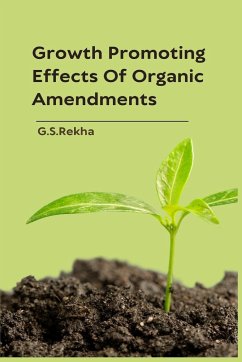In the field of agriculture, the use of organic amendments has gained significant attention as a sustainable approach to enhance plant growth and increase crop yield. G.S. Rekha's research paper on "Growth Promoting Effects of Organic Amendments" delves deeper into the various factors that contribute to soil fertility and plant health. The paper explores the various organic amendments that can be used to promote plant growth, including composting, vermicomposting, biochar, manure, green manure, cover crops, and mulching. These amendments aid in improving soil health and nutrient management, leading to sustainable agriculture practices. The importance of soil health cannot be overstated, as it is the foundation of plant growth. Rekha's research highlights how the use of organic amendments can improve soil structure, water holding capacity, soil porosity, and soil aeration. These amendments also play a critical role in nutrient retention, carbon sequestration, and micronutrient content, leading to enhanced plant disease resistance and weed control. In addition, organic amendments contribute to beneficial insect and pollinator habitat, leading to erosion control and improved soil ecosystem services. The paper also highlights the importance of regenerative agriculture, agroecology, permaculture, and biodynamic farming in promoting sustainable agriculture practices. Rekha's research stresses the importance of organic certification, agricultural sustainability, environmental stewardship, climate change mitigation, and carbon footprint reduction. By incorporating organic amendments into agricultural practices, farmers can promote healthy soil and plants while reducing their environmental impact. Overall, this research paper serves as an essential guide for farmers and researchers alike, as it sheds light on the numerous benefits of organic amendments and their role in promoting sustainable agriculture practices
Bitte wählen Sie Ihr Anliegen aus.
Rechnungen
Retourenschein anfordern
Bestellstatus
Storno








